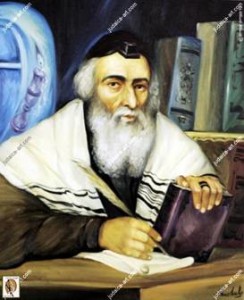When the descendants of Noah were commanded concerning dinim, the commandment was only that they establish laws among themselves, for the world rests on law. Thus also, even after the Sinai revelation: the judges were directed to establish legal norms suited to their nations concerning what had not been commanded. And so it is practiced today among the nations. Merchants and artisans were also instructed to establish regulations among themselves. Donkey drivers are permitted to agree among themselves that when one loses a donkey, the others will replace it, and seamen are permitted to agree among themselves that if one loses a ship, the others will replace it. Similarly, they may agree that if a slaughterer works on a day not designated as his, the skin of his beast shall be destroyed. [or as established in the Talmud,] basket weavers and wool merchants who journey to another town may be prevented by that city’s merchants from selling their wares. In all such cases, since the Torah has enjoined obedience to the judges of every generation, it is as though the law was written in the Torah, and anyone who violates it violates the Torah itself.
All this relates to the principle ” the law of the land is binding.” Since the commandment of dinim is ancient, and since it is impossible to provide for every new situation, it follows that the decree of the king should be valid and that we should issue rulings in accordance with it, providing it does not contradict the Torah.
for PDF of Original Hebrew text click here:
ספר מלמד התלמידים פרשת משפטים 2
MALMAD HATALMIDIM
R. Ya’akov b. R. Abba Mari Anatoli, flourished in Provenzia (southern France) c. 1200, but spent his last years in Italy. His mentor was his father-in-law, the famous translator and philosopher Shmuel ibn Tibbon. R. Ya’akov Anatoli also translated compilations dealing with torah and science from Arabic to Hebrew. He used to publicly preach on matters of faith, ethics and service of God, and he later collected these sermons according to the biblical order in his book, Malmad haTalmidim. In this work he quoted the Sages and many philosophers, including Christians. This book was considered quite important in its time, and was quoted in later books of philosophy and Jewish Law, including Sefer Orchot Hayim, Kolbo, Sefer Menorat haMaor, and Sefer Abudraham. R. Ya’akov fought against the opponents of philosophy, and consequently he and his book were attacked by Rashba and other rabbis. At the end of his life he relocated to Naples, and was closely associated with Friedrich II, the Holy Roman Emperor. The Malmad haTalmidim was published once by the Mekitzei Nirdamim Society in 1866 from a manuscript in Lyck, Prussia, and since then has been reproduced.
Click here for: The Laws Incumbent Upon the Nations


